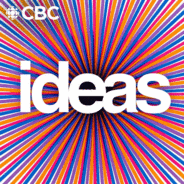Physics has been full of astonishing discoveries over the past century. But they open up even bigger mysteries that scientists are working feverishly to explain. What is dark energy? And why is the expansion of the universe accelerating? In public talks at the Perimeter Institute for Theoretical Physics in Waterloo, Ontario, two prominent physicists – Sarah Shandera of Penn State University and Stanford University’s Savas Dimopoulos – discuss the breakthroughs of recent decades and what it will take to solve the most nettlesome mysteries that have deepened in their wake.

Kultur & GesellschaftPolitik
Ideas Folgen
IDEAS is a place for people who like to think. If you value deep conversation and unexpected reveals, this show is for you. From the roots and rise of authoritarianism to near-death experiences to the history of toilets, no topic is off-limits. Hosted by Nahlah Ayed, we’re home to immersive documentaries and fascinating interviews with some of the most consequential thinkers of our time.With an award-winning team, our podcast has proud roots in its 60-year history with CBC Radio, exploring the IDEAS that make us who we are. New episodes drop Monday through Friday at 5pm ET.
Folgen von Ideas
240 Folgen
-
Folge vom 04.11.2025How mind-bending theories could solve mysteries in physics
-
Folge vom 03.11.2025To fix America's caste system, acknowledge it exists: authorThe true story of America is that it was built on a caste system comparable to India’s, says Pulitzer-prize-winning American journalist Isabel Wilkerson. The author argues that it's key to recognize the roots of the U.S. caste "structure" as she calls it, to understand why conflicts relating to race and class persist. Wilkerson delivered the 2025 Beatty Lecture at McGill University in Montreal.
-
Folge vom 31.10.2025Mexican fiction turns drug kingpins into vicious vampiresThere’s a burgeoning genre of fiction coming from Mexico — stories that merge socio-political history and the impact of drug-related violence with fantastical stories of eerie ghosts, zombies, and monstrous cannibals. IDEAS explores dozens of gothic, horror and crime fiction novels. *This episode is part of our ongoing series, IDEAS from the Trenches, about outstanding PhD scholars across the country. It originally aired on June 5, 2023.We'd love to hear from you. Fill out our listener survey here.
-
Folge vom 30.10.2025Can democracies survive the attacks on the rule of law?Even in some of the world’s sturdiest democracies, leaders are deliberately undermining courts to weaken checks on their power. In many cases, the justice system is being sidelined. How much damage has already been done? And how worried should we be about the future of democracies around the world?We'd love to hear from you. Fill in our listener survey.
